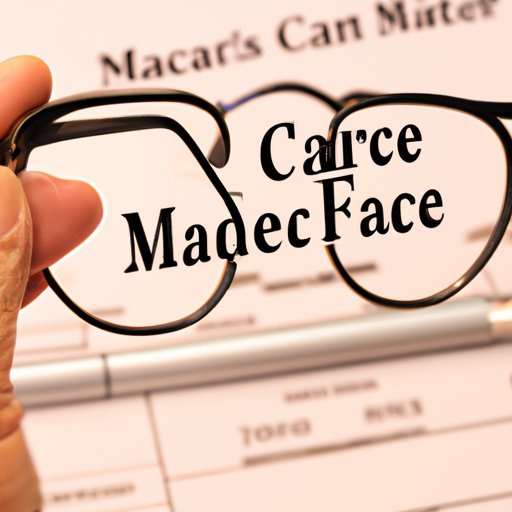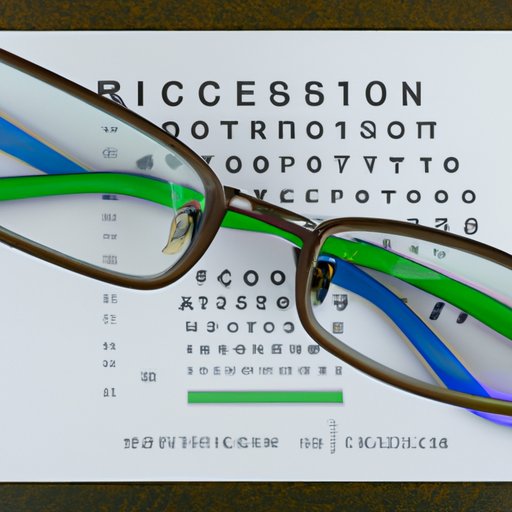An Overview of Medicare Coverage for Glasses After Cataract Surgery
If you’ve had cataract surgery, you may be wondering how much does Medicare pay for glasses after the procedure. Medicare coverage for post-cataract surgery eyeglasses can vary depending on a number of factors, including your individual plan and the type of glasses you need. Understanding Medicare’s coverage and reimbursement policy can help you make an informed decision about your eye care needs.
What is Covered by Medicare?
Generally speaking, Medicare covers some or all of the costs associated with cataract surgery, such as the procedure itself, any necessary follow-up visits, medications, and even glasses needed after the surgery. In most cases, Medicare will cover the cost of one pair of eyeglasses or contact lenses to correct vision following the procedure. Some plans may also provide coverage for additional pairs of glasses or contacts.
What isn’t Covered by Medicare?
It’s important to note that there are certain items and services that Medicare does not cover when it comes to post-cataract surgery glasses. These include: designer frames, tinted lenses, bifocals, trifocals, progressive lenses, and any other lenses or frames that are considered non-standard. Additionally, Medicare does not cover laser vision correction surgery, such as LASIK or PRK.
Breaking Down the Costs: How Much Does Medicare Pay for Glasses After Cataract Surgery?
When it comes to determining how much Medicare pays for glasses after cataract surgery, it all depends on your specific plan. Typically, Medicare Part B covers 80 percent of the cost of medically necessary eyeglasses, while the remaining 20 percent is the patient’s responsibility. However, this amount can vary depending on the type of plan you have and whether you are enrolled in a Medicare Advantage plan.
Medicare Payment Structure
When filing a claim for post-cataract surgery glasses, Medicare typically pays for the frame, lenses, and any applicable copayments. The frame must be approved by your doctor before Medicare will cover it. The lenses must also meet Medicare’s coverage standards. For example, if you choose to get bifocal or trifocal lenses, you may be responsible for the entire cost since these types of lenses are not usually covered by Medicare. Additionally, Medicare will not cover the cost of any accessories such as lens cleaners, cases, or straps.
Additional Costs
In addition to the cost of the glasses and frames, there are other costs associated with getting post-cataract surgery glasses. These include the cost of the eye exam, any applicable copayments, and any additional fees charged by the provider. Depending on your plan, you may also be responsible for paying a deductible before Medicare begins to cover the costs of your glasses.
A Guide to Understanding Medicare Reimbursement for Post-Cataract Surgery Eyeglasses
When filing a claim for post-cataract surgery eyeglasses, there are several things you should know about Medicare’s reimbursement policy. First, you must be enrolled in Medicare Part B in order to be eligible for coverage. Additionally, you must have a valid prescription from an eye doctor and submit a Medicare claim form. You should also keep in mind that Medicare does not cover the cost of any non-standard lenses or frames.
Eligibility Requirements
In order to receive coverage for post-cataract surgery glasses, you must meet the following eligibility requirements: you must be enrolled in Medicare Part B, you must have a valid prescription from an eye doctor, and you must submit a Medicare claim form. Additionally, you must be able to demonstrate that the glasses are medically necessary and that they meet Medicare’s coverage standards.

How to File a Claim
Once you’ve met the eligibility requirements, you can file a claim for post-cataract surgery eyeglasses. To do so, you’ll need to fill out a Medicare claim form and submit it to your insurance provider. The claim form should include the information required by Medicare, such as the type of glasses you need, the date of service, and the name of the provider. Once your claim has been processed, you will receive reimbursement for your expenses.
What You Need to Know About Medicare’s Coverage for Glasses Following Cataract Surgery
It’s important to understand that Medicare’s coverage for post-cataract surgery glasses is subject to certain restrictions and limitations. Before you receive coverage, you may need to obtain preauthorization or referrals from your doctor. Additionally, there are certain items and services that Medicare does not cover, such as designer frames, tinted lenses, bifocals, trifocals, progressive lenses, and laser vision correction surgeries.
Preauthorization and Referrals
Before Medicare will cover the cost of post-cataract surgery glasses, you may need to obtain preauthorization or referrals from your doctor. Your doctor must provide documentation demonstrating that the glasses are medically necessary and that they meet Medicare’s coverage standards.
Exclusions
In addition to preauthorization and referrals, there are certain items and services that Medicare does not cover when it comes to post-cataract surgery glasses. These include: designer frames, tinted lenses, bifocals, trifocals, progressive lenses, and any other lenses or frames that are considered non-standard. Additionally, Medicare does not cover laser vision correction surgery, such as LASIK or PRK.

Exploring the Benefits and Limitations of Medicare Coverage for Glasses After Cataract Surgery
Medicare coverage for post-cataract surgery glasses can offer many benefits, including covering the cost of the frames, lenses, and applicable copayments. However, it’s important to understand that there are certain restrictions and limitations to Medicare’s coverage, including preauthorization and referrals, as well as exclusions for certain items and services.
Pros
The main benefit of Medicare coverage for post-cataract surgery glasses is that it can help cover the cost of the frames, lenses, and applicable copayments. Additionally, Medicare typically covers 80 percent of the cost, leaving the remaining 20 percent to the patient.
Cons
One of the drawbacks of Medicare coverage for post-cataract surgery glasses is that it does not cover the cost of certain items and services, such as designer frames, tinted lenses, bifocals, trifocals, progressive lenses, and laser vision correction surgeries. Additionally, you may be responsible for paying a deductible before Medicare begins to cover the costs of your glasses.
(Note: Is this article not meeting your expectations? Do you have knowledge or insights to share? Unlock new opportunities and expand your reach by joining our authors team. Click Registration to join us and share your expertise with our readers.)
